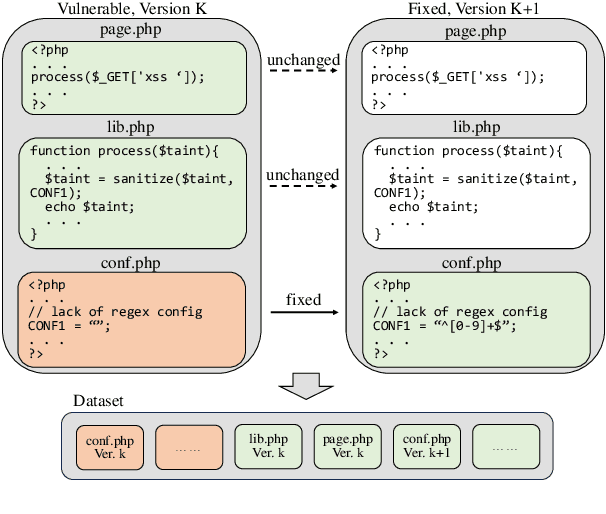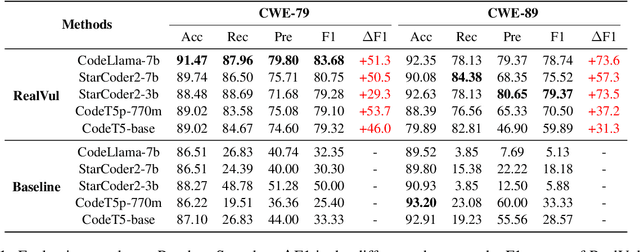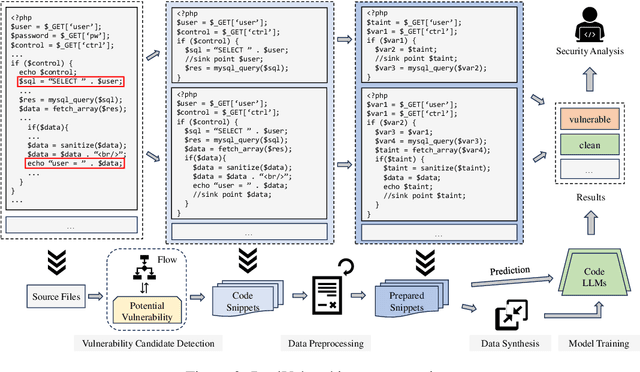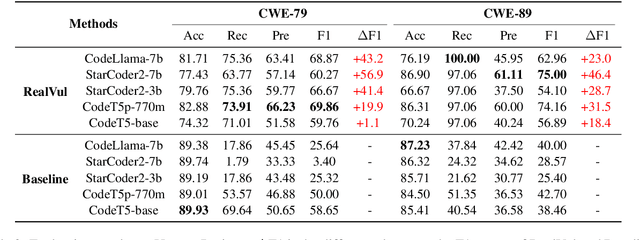RealVul: Can We Detect Vulnerabilities in Web Applications with LLM?
Paper and Code
Oct 10, 2024



The latest advancements in large language models (LLMs) have sparked interest in their potential for software vulnerability detection. However, there is currently a lack of research specifically focused on vulnerabilities in the PHP language, and challenges in extracting samples and processing persist, hindering the model's ability to effectively capture the characteristics of specific vulnerabilities. In this paper, we present RealVul, the first LLM-based framework designed for PHP vulnerability detection, addressing these issues. By vulnerability candidate detection methods and employing techniques such as normalization, we can isolate potential vulnerability triggers while streamlining the code and eliminating unnecessary semantic information, enabling the model to better understand and learn from the generated vulnerability samples. We also address the issue of insufficient PHP vulnerability samples by improving data synthesis methods. To evaluate RealVul's performance, we conduct an extensive analysis using five distinct code LLMs on vulnerability data from 180 PHP projects. The results demonstrate a significant improvement in both effectiveness and generalization compared to existing methods, effectively boosting the vulnerability detection capabilities of these models.
 Add to Chrome
Add to Chrome Add to Firefox
Add to Firefox Add to Edge
Add to Edge